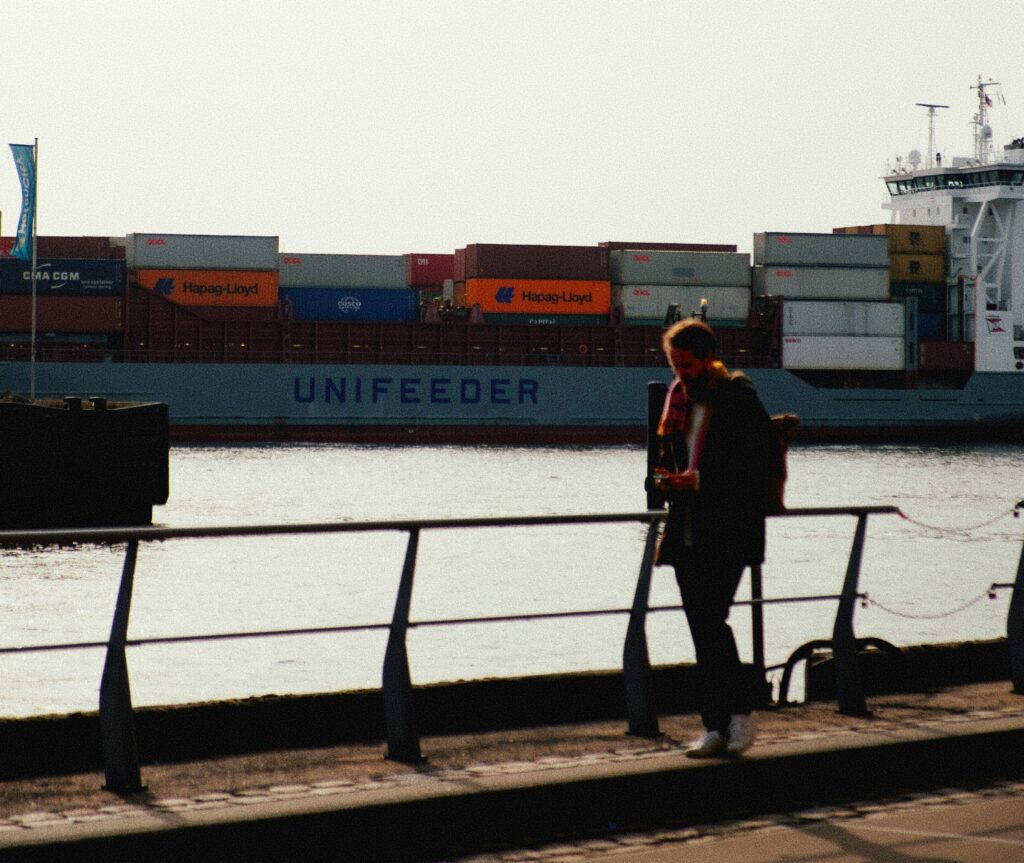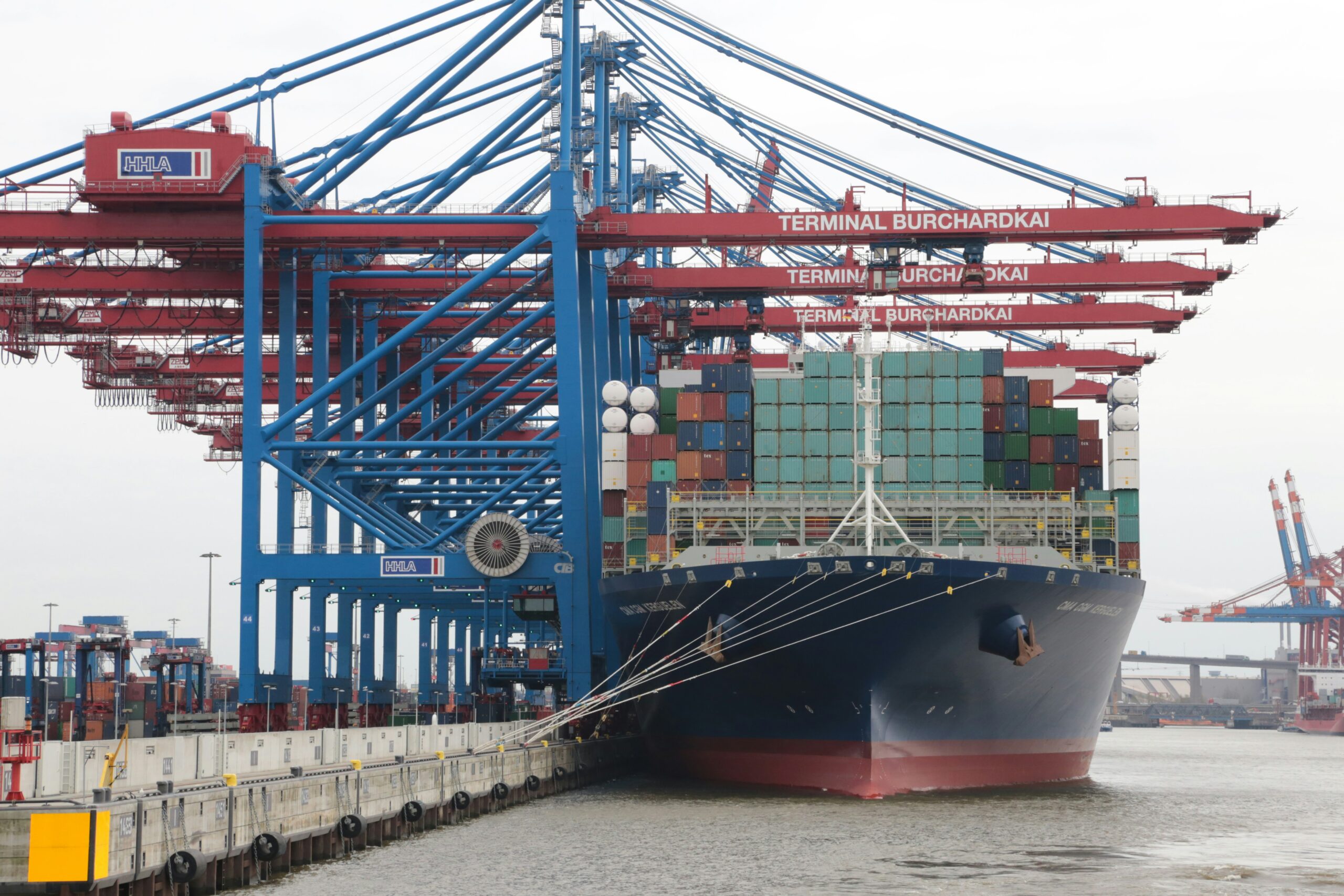The maritime industry is undergoing a major change driven by AI, sustainable growth, and demand for faster logistics. In 2025, sea shipping will leverage cutting-edge technologies to reduce costs, emissions, and delivery times.
The UAE, a global logistics hub, is leading the charge in redefining sea shipping through AI and cutting-edge port infrastructure. For businesses in Dubai, Abu Dhabi, and beyond, these advancements promise faster deliveries, reduced costs, and compliance with the UAE’s Net Zero 2050 goals.
Whether planning industrial relocations, corporate moves, or cross-border logistics, understanding these trends is critical.
In this guide, we will explore key trends reshaping ocean freight, offering insights for businesses planning corporate or industrial relocations.
Role of AI in Revolutionising Sea Shipping
Smart Route Optimisation for Middle Eastern Waters
AI algorithms analyse weather, currents, and traffic to optimise routes, reducing fuel use by up to 10%. Maersk’s collaboration with IBM’s Weather Company saved $100M annually through predictive routing.
AI-driven platforms like Dubai’s TradeTech Initiative use machine learning to optimise routes through the Arabian Gulf, factoring in regional challenges like sandstorms and high temperatures.
Similarly, Emirates Shipping Line has also reduced fuel costs by 12% using IBM’s AI tools.
Predictive Maintenance
Predictive maintenance uses IoT sensors, AI analytics, and machine learning to monitor equipment health in real time.
By analysing data like vibration, temperature, and pressure, the system flags anomalies (e.g., engine wear or coolant leaks) before they cause breakdowns.
For Sea Shipping businesses, this is a game-changer for managing high-value cargo ships, port cranes, and refrigeration units critical for perishable goods.
Sensors monitor engine health in real-time, preventing breakdowns. The global smart shipping market is projected to hit $5.3B by 2027.
DP World’s Jebel Ali Port employs IoT sensors to monitor cargo ships and cranes, cutting downtime by 25%. The UAE’s smart shipping market is projected to grow at 9.8% CAGR through 2027.
Autonomous Vessels
Rolls-Royce’s autonomous ships, tested in Finland, promise 15% lower operational costs. Fully crew-less ships may debut by 2025.

Abu Dhabi’s AD Ports Group is also testing crew-less vessels for short-haul routes, aiming to slash operational costs by 20% by 2025. These innovations are ideal for UAE businesses seeking reliable, round-the-clock logistics.
Chevron Shipping is one of the leading air and ship freight service provider based in dubai. We are highly focussed on implementation of technology in our supply chain to reduce cost.
With global partnerships, Chevron Shipping has managed to provide affordable and hassle-free international cargo services across the globe successfully.
Sustainability: Green Shipping Ambitions
Alternative Fuels & UAE Energy Leadership
For sustainable growth and achieving green shipping ambitions, organisations are focussing on LNG, hydrogen, and ammonia.
The IMO aims for 50% GHG reduction by 2050. Maersk’s methanol-powered fleet highlights this shift.
The UAE’s $163 Bn investment in clean energy includes green hydrogen for ships. DP World’s partnership with Maersk on methanol-powered vessels aligns with Dubai’s 2040 Urban Master Plan.
Wind Energy & Solar-Powered Ports
Wind-assisted propulsion systems (WAPS) are being introduced in the shipping industry. These systems utilise wind energy to supplement (or replace) traditional propulsion methods, offering potential for fuel savings, reduced emissions, and increased sustainability.
Rotorsails by Norsepower, one such patented technology, claims to cut fuel use by 20% on select routes.
Sharjah’s Hamriyah Port uses solar-powered cranes, while Abu Dhabi’s Masdar collaborates on wind-assisted propulsion trials. These projects reduce CO2 emissions by 30% for UAE-bound cargo.
Carbon-Neutral Corridors
Startups like Value Maritime install scrubbers to capture CO2, aiming for net-zero voyages by 2030.
The UAE-Singapore Green Lane Initiative prioritises ships using biofuels, offering faster customs clearance for eco-conscious businesses.
Faster Deliveries: UAE’s Port & Tech Innovations
Hyper-Efficient Ports
Robotic cranes and AI-driven scheduling at Rotterdam’s IoT-enabled ports cut turnaround by 30% as reported by World Economic Forum, 2023.
Jebel Ali Port’s $1.6B expansion includes AI-driven robotic cranes, cutting unloading times by 40%. UAE companies relocating machinery or bulk goods benefit from 24/7 automated operations.
Blockchain & Transparency
Dubai’s TradeLens platform, backed by IBM and Maersk, digitizes bills of lading, reducing paperwork delays by 50%. Ideal for UAE businesses managing time-sensitive industrial relocations.
>>Get Hassle-free international and domestic relocation and cargo services at your door-step now.
AI-Powered Last-Mile Logistics
AI is revolutionising last-mile connectivity in the shipping industry by optimising routes, automating tasks, enhancing customer experiences, and improving efficiency and sustainability.
With advanced maritime industry’s AI software, organisations can streamlines ocean freight operations, offering features like real-time tracking, route optimisation, and automated documentation, ultimately improving efficiency and reducing costs.
Windward’s AI predicts ETAs with 90% accuracy, streamlining supply chains.
Challenges Ahead
The future of sea shipping faces challenges including environmental regulations, geopolitical instability, rising costs, cyber security threats, and crew shortages, requiring the industry to adapt and innovate to ensure sustainable and efficient global trade.
Here are few key challenges for sea shipping globally:
- High upfront costs for green fuels and AI systems.
- Regulatory hurdles for autonomous ships.
- Geopolitical Instability and Security.
- Technological and Operational Challenges.
Maritime industry has been, and will be the key part of global economy. It has been evolving since long ago. We have seen major advancements in recent times. Similarly, industry has always faced major hurdles.
To deal with these hurdles, the cooperation between stakeholders is the key to securing and ensuring the prosperity of the ocean transport market.
Commercial Opportunities for Businesses
- Cost Savings: AI and automation reduce sea freight costs by 15–25%, critical for UAE businesses scaling regional operations.
- Sustainability Compliance: Adopt green shipping to meet UAE ESG standards and qualify for tax incentives.
- Speed: Leverage Jebel Ali’s upgrades for 30% faster Asia-Europe transit times vs. regional competitors.
Why Partner with Chevron Shipping?
At chevron shipping, we integrate latest technological advancement in maritime and logistics industry. You can expect the hassle-free and affordable relocation services in UAE.
To help our users, we offer:
- Customised solutions for industrial equipment relocation.
- Expertise in UAE sustainability regulations.
- Corporate and industrial relocations, handling all types of offices, manufacturing units, equipments etc.
- Seamless door to door delivery.
- Best affordable prices, expert relocation services.
Position Your Business Ahead in 2025
In 2025, AI, sustainability, and tech innovations will redefine sea shipping. Businesses can leverage these advancements for cost-effective, eco-friendly relocations. Partner with forward-thinking logistics providers to stay ahead.
The UAE’s sea shipping sector is a gateway to faster, greener, and smarter logistics. By partnering with tech-driven Chevron Shipping, businesses can optimise supply chains, cut costs, and align with the UAE’s vision for a sustainable economy.

